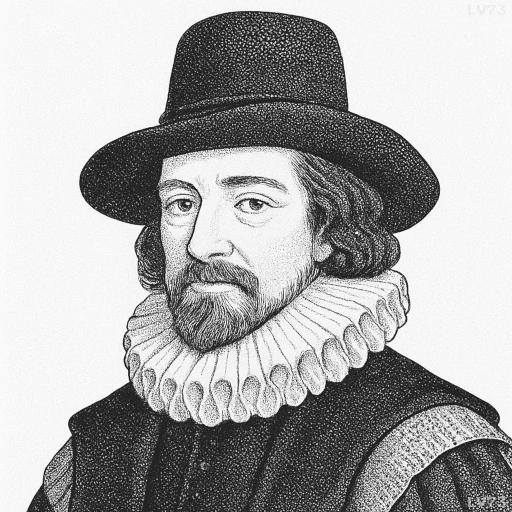“There is nothing makes a man suspect much, more than to know little.”

- January 22, 1561 – April 9, 1626
- Born in England
- Philosopher, theologian, jurist, politician, aristocrat
table of contents
Quote
“There is nothing makes a man suspect much, more than to know little.”
Explanation
In this quote, Francis Bacon suggests that ignorance can breed suspicion. When a person lacks knowledge or understanding, they are more likely to be paranoid or distrustful because they are unable to see the full picture. Limited knowledge creates uncertainty, and in the absence of clear understanding, the mind tends to fill in the gaps with assumptions or doubts. Bacon implies that suspicion arises not from knowing too much, but from knowing too little—because the mind, when confronted with incomplete information, is prone to imagine hidden motives or unclear intentions.
Bacon’s view reflects his Renaissance commitment to empirical knowledge and the idea that understanding the world through careful study and observation can reduce suspicion and unfounded fear. During the Renaissance, intellectuals increasingly recognized that ignorance was a major source of conflict and misunderstanding, while knowledge—gained through inquiry and exploration—could provide clarity and resolve. Bacon, a strong advocate for the scientific method, understood that informed reasoning was essential for overcoming doubt and uncertainty.
In modern times, this quote resonates with contemporary ideas about critical thinking and education. Lack of education or exposure to facts often leads to misunderstandings and conspiracy theories, where individuals fill in the gaps with fear or paranoia. By encouraging a broader understanding of the world, Bacon’s insight suggests that knowledge—whether through science, education, or personal inquiry—helps alleviate suspicion and leads to more rational and reasoned thinking. Bacon’s quote serves as a reminder that insecurity and distrust often stem from the unknown, and that learning is key to dispelling such doubts.
Would you like to share your impressions or related stories about this quote in the comments section?

